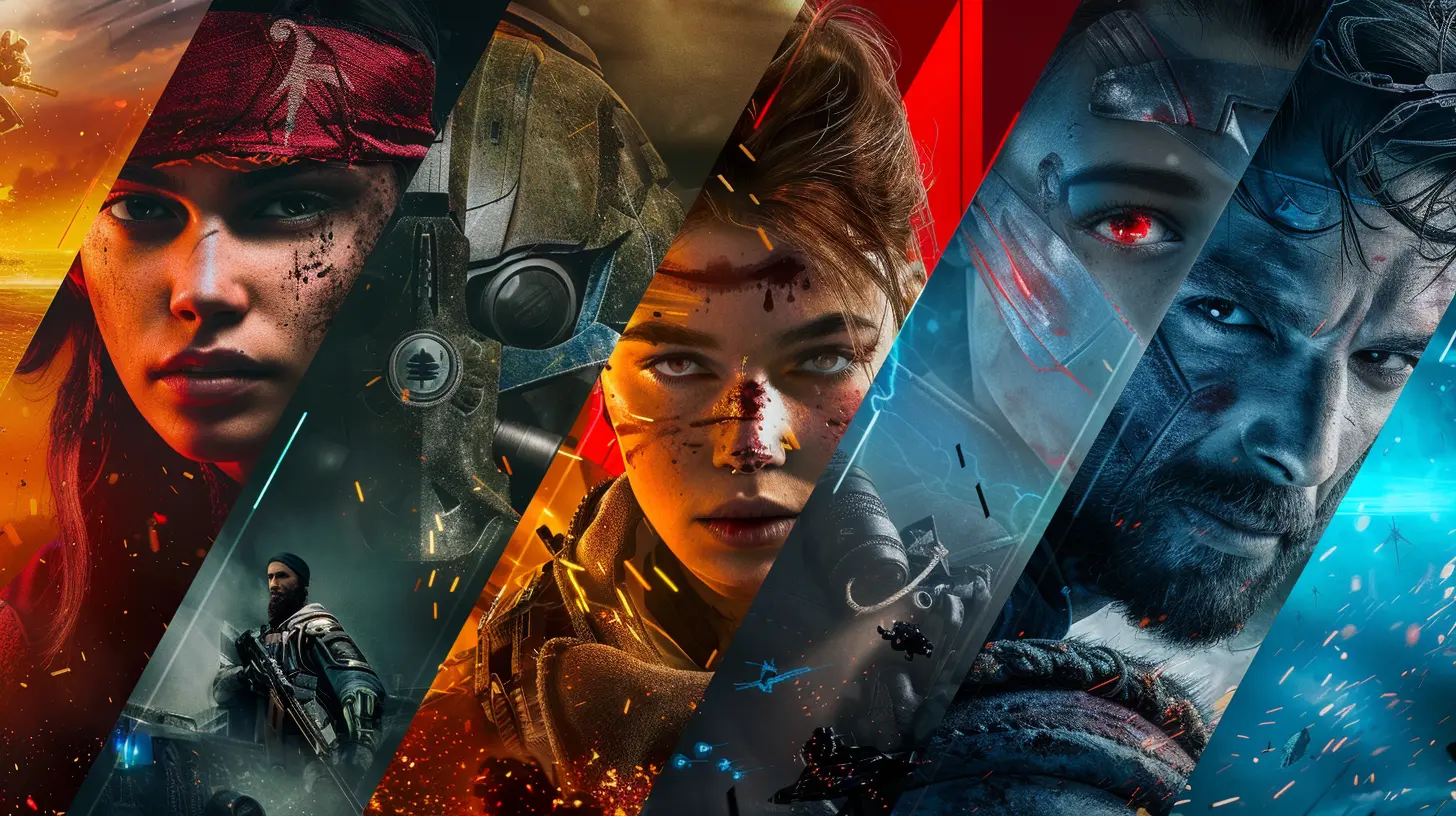Are Season Passes a Sign of Games as a Service Future?
13 October 2025
If you've been gaming for more than a hot minute, you've definitely heard of season passes. Whether you're grinding in Call of Duty, crawling dungeons in Destiny, or building dream teams in FIFA Ultimate Team, these passes have become as common as loot crates used to be. But here’s a question worth pondering: Are season passes a sign of games as a service (GaaS) future?
Let’s dive into this rabbit hole and break down what season passes really mean for the future of gaming.
What Exactly is a Season Pass?
In simple terms? A season pass is kind of like a subscription to extra content in a game. You get access to exclusive rewards, new challenges, cosmetic items, and sometimes even story expansions—for a limited time. Most season passes work on a time-based model. Buy the pass, play that season, unlock stuff as you progress.It’s a smart way for developers to keep players engaged over months instead of just a weekend. Not to mention, it’s a sweet revenue model.
But here's the twist: season passes didn’t just pop out of nowhere.
A Brief History of Season Passes
Let's rewind a bit. Back in the early 2010s, season passes started surfacing as a way to bundle DLC (downloadable content). Games like Borderlands 2 and Battlefield 3 used them to keep the cash flowing after the initial sale. Initially, this meant buying all upcoming DLC at a discount. Sounded great, right?Fast forward to today, and the concept has evolved—big time. What was once a one-time content bundle has turned into a recurring, almost subscription-like model. We're no longer just paying for extra maps or missions; now we’re paying for ongoing engagement.
And that, my friends, smells a lot like games as a service.
What Is "Games as a Service" (GaaS) Anyway?
If you're not familiar with the term, GaaS is all about treating games like ongoing platforms instead of one-and-done products. Think Fortnite, Apex Legends, or Destiny 2. These games are constantly updated, refreshed with new content, and designed to keep players coming back week after week, month after month.Instead of buying a game and being done, you're part of a living, breathing experience. Sounds cool on paper, right? But of course, it comes with its own set of pros and cons.
Season passes are one of the main delivery mechanisms for GaaS. They act as both content and monetization updates—keeping the game alive and keeping the devs paid.
Season Passes: The Fuel Behind Live-Service Games
Let’s not beat around the bush—money talks. And season passes bring in consistent revenue. Instead of relying on that huge Day One sales spike, developers can have a steady income stream every couple of months.From a business standpoint? Genius. From a player's standpoint? It’s a bit more complicated.
The Good:
- Constant fresh content: New skins, maps, modes.- Value variety: Many passes offer generous rewards for a small price.
- Extended game lifespan: Games don't just die off after a few months.
The Bad:
- FOMO is real: If you miss a season, the rewards vanish forever.- Grind fatigue: Some passes feel like a job, not a game.
- Paywalls: Some content is locked unless you cough up cash.
It’s easy to see how this model hooks players. The more you invest—time or money—the harder it is to walk away.
Why Are Developers Leaning Into Season Passes?
Put yourself in a developer’s shoes for a second. You pour years into making a game. You release it, and boom—sales skyrocket...for about three weeks. Then what?Season passes solve that problem. They allow devs to:
- Plan content in advance: With seasons, the roadmap is king.
- Gauge player interest: They can see what content keeps players coming back.
- Extend the game lifecycle: Why launch 10 new games when you can just nurture one?
Games like Rainbow Six Siege have been going strong for nearly a decade, thanks in part to seasonal updates. It's like gardening: instead of planting something new every year, you just keep watering the same cactus.
The Role of FOMO in Season Passes
Here’s the kicker—season passes are masters of emotional marketing. They don’t just sell content, they sell urgency. Limited-time gear, exclusive cosmetics, and tiered rewards that vanish if you don't grind enough? That’s FOMO (Fear Of Missing Out) 101.Ever logged into a game and felt behind because you missed the beginning of the season? Yeah, that’s not an accident. That’s design.
It walks a fine line between motivation and manipulation. And that's why some players are raising eyebrows at what season passes are becoming—not just fun add-ons, but carefully engineered engagement tools.
Are Players Actually Enjoying Season Passes?
Mixed bag, really.On one hand, players like the structure. There’s always something to look forward to. On the other hand, it can feel like a second job—one where the "paycheck" is a skin for your favorite character.
Some players love the grind. Others hate it. But here’s the important part: more often than not, they still buy it. Why? Because the fear of missing out and the lure of exclusive rewards is strong.
It's kind of like buying a gym membership in January. You might not use it every day, but hey, at least you could.
So, Are Season Passes the Future of Gaming?
Short answer? Yeah, kinda.Long answer? They’re a big part of it, but not the whole picture.
Games as a service isn't just about monetization. It’s about community, content, and longevity. Season passes are just one tool in a dev’s toolbox. You've also got battle passes, live events, subscriptions (like Xbox Game Pass), and microtransactions.
What’s clear is that the days of "buy once, play forever" are fading for many big games. Like streaming services, the model is shifting toward continued engagement.
Not every game needs to be a service, of course. Story-driven, single-player experiences are still alive and kicking (shoutout to Elden Ring and Tears of the Kingdom!). But for multiplayer and competitive games? Season passes are here to stay.
What Does This Mean for the Future of Gaming?
Big question. Let’s break it down.1. Games Will Be Built Differently
Developers are now designing games with longevity in mind. That means modular content, seasonal updates, and more online infrastructure. The goal? Keep players playing—and paying.2. More Games Will Require Online Connectivity
Even single-player elements are being tied into live-service frameworks. That could mean more always-online requirements, server maintenance, and—unfortunately—more outages.3. Games May Become More Affordable Upfront
A positive side effect? Some games are launching cheaper (or even free), relying on season passes and cosmetics to foot the bill. For players, that’s a win—if you don’t get sucked into buying everything else.4. Player Feedback Will Shape Development
With live-service games, devs are constantly tweaking and adjusting based on how players respond. That gives the community a louder voice—but also means you're kind of a beta tester all the time.Will Season Passes Eventually Wear Out Their Welcome?
That’s the million-dollar question.Right now, the model works—but only as long as trust is maintained. If players feel like the grind is too heavy, the content isn’t worthwhile, or the pass is overpriced, they’ll push back. And they already have.
We’ve seen passes adjusted mid-season, rewards increased, and progress requirements dropped. Developers are listening (sometimes). But if the balance tilts too far into exploitation, rest assured: players will fight back.
Gamers aren’t afraid to speak their minds—especially when wallets are involved.
So... Should You Buy That Season Pass?
Listen, I’m not gonna tell you how to spend your money. But here’s the deal:- If you're actively playing the game? Go for it. The rewards will probably be worth it.
- If you’re only popping in once a week? Maybe hold off.
- If you’re a completionist with FOMO issues? Proceed with caution. Seriously.
At the end of the day, season passes can enhance your experience—but only if the game itself is good enough to keep you hooked.
Final Thoughts
So, are season passes a sign of the games as a service future? Absolutely. They’re one of the clearest indicators that the industry is shifting away from one-time products toward ongoing platforms.They’re not inherently evil. They can be fun, rewarding, and even bring communities closer. But they also come with strings attached: time, money, and emotional commitment.
Like any tool, it all depends on how they're used.
As players, we just need to stay informed, set our limits, and remember the most important rule of all:
Games should be fun—not chores.
all images in this post were generated using AI tools
Category:
Season PassesAuthor:

Francesca West
Discussion
rate this article
1 comments
Nymira McGuffin
Season passes? More like a subscription to endless disappointment! If developers think they can cash in on our nostalgia while delivering half-baked content, they’ve got another thing coming. Gamers deserve complete experiences, not endless ‘add-ons’ to drag out our wallets!
October 15, 2025 at 4:16 AM

Francesca West
While many share your frustration with season passes and perceived incomplete content, they can also allow for ongoing development and engagement. The balance between nostalgia and quality remains crucial for satisfying gamers' expectations.


